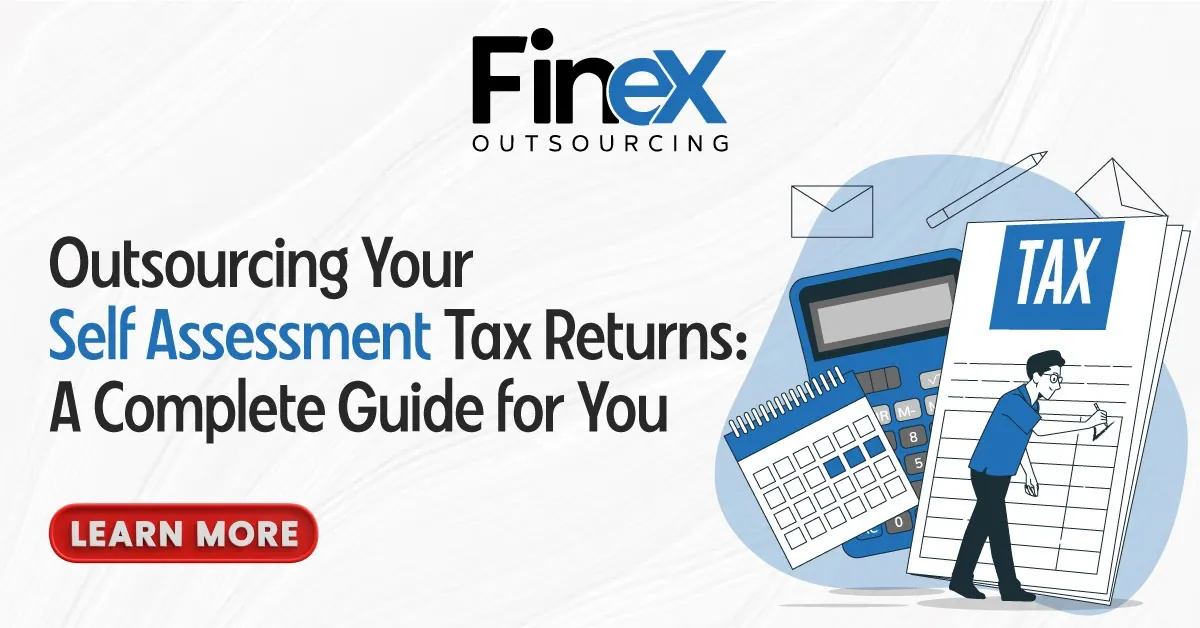The Self Assessment tax season is here, and we all know what that means—December and January are hectic. With numerous clients to handle and deadlines fast approaching, it’s no surprise that many accountants find themselves overwhelmed. It’s Self Assessment tax season, which means December and January are busy months. With so many clients to handle and deadlines approaching quickly, it’s no wonder that many accountants choose to outsource tax preparation to ensure they can pay self assessment tax effectively.
If you’re thinking about outsourcing but need help figuring out where to start, this guide is for you. We’ll take you through the entire process, from choosing the right tax return outsourcing partner to understanding how the workflow functions once they’re on board. Let’s get started on managing your responsibilities and ensuring that clients can pay self assessment tax on time.
Why Consider Outsourcing Self Assessment Tax Returns?
Before diving into the ‘how,’ let’s first address the ‘why.’ The main advantage of outsourcing Self Assessment tax returns is that it can greatly reduce your workload during the busiest time of the year. By entrusting this task to a dependable external provider, you allow your internal team to concentrate on more strategic responsibilities. Additionally, it can be more cost-effective than handling everything internally, particularly if your team is already operating at full capacity.
How to Choose the Right Outsourcing Partner
When it comes to outsourcing your Self Assessment tax returns, selecting the right partner is crucial. The right provider will ensure that your clients can pay Self Assessment tax accurately and on time, minimizing stress for your team and your clients. Here are some key factors to consider:
-
Experience and Expertise
Look for a provider with a proven track record in handling Self Assessment tax returns. They should have expertise in the specific tax laws and regulations that apply to your clients. This ensures that they can navigate the complexities of tax filing and ensure that all deadlines are met.
-
Data Security:
Given the sensitive nature of tax information, data security should be a top priority. Ensure that the outsourcing partner has robust security protocols in place to protect your clients’ personal and financial information.
-
Communication and Transparency:
A good outsourcing partner should offer clear and regular communication. They should be transparent about their processes and keep you informed at every stage. This will help you maintain control and confidence in the process, ensuring that your clients’ tax returns are handled correctly.
-
Cost-Effectiveness:
While outsourcing can be more cost-effective than managing everything in-house, it’s essential to understand the pricing structure of your potential partner. Compare different providers to find a balance between quality service and affordability.
Also Read: Reduce Costs and Improve Efficiency For Your Accounting Practice By Outsourcing
- Scalability:
Consider whether the outsourcing provider can scale their services according to your needs. During peak times like December and January, the ability to handle a larger volume of work efficiently is essential to ensure all clients pay their Self Assessment tax on time.
Understanding the Workflow
Once you’ve chosen an outsourcing partner, it’s important to understand how the workflow will function. This will help ensure a smooth transition and effective collaboration.
- Initial Setup:
The first step is usually an onboarding process where you provide the outsourcing partner with all the necessary client information. This might include financial records, previous tax returns, and any other relevant documents. - Process Outline:
Your partner will typically outline their process for handling Self Assessment tax returns. This includes timelines, milestones, and checkpoints. Understanding this process will help you manage expectations and stay on top of deadlines. - Ongoing Collaboration:
Throughout the tax season, there should be ongoing collaboration between your internal team and the outsourcing provider. Regular updates and reviews will ensure that the process stays on track and that any issues are addressed promptly. - Final Review and Submission:
Before the tax returns are filed, your team will likely have an opportunity to review the work done by the outsourcing partner. This final review is crucial to ensure accuracy and compliance before submission, allowing your clients to pay their Self Assessment tax without any hitches.
Benefits of Outsourcing
To recap, outsourcing Self Assessment tax returns can be a game-changer, particularly during the busy tax season. The benefits include:
- Reduced Workload: By delegating tax return preparation, your team can focus on more strategic tasks, improving overall productivity.
- Timely Compliance: A reliable outsourcing partner helps ensure that all tax returns are filed on time, preventing any late penalties for your clients.
- Cost Savings: Outsourcing can be more cost-effective, especially if it helps you avoid the need for temporary staff or overtime during peak periods.
- Improved Client Satisfaction: With the right partner, you can provide a seamless service, ensuring that clients pay their Self Assessment tax accurately and on time.
Final Thoughts
Outsourcing your Self Assessment tax returns can provide significant advantages, from easing your workload to ensuring timely compliance. By carefully selecting a qualified partner like FineX Outsourcing and understanding the workflow, you can enhance your ability to manage this crucial period effectively. FineX Outsourcing is known for its expertise, robust data security, and reliable service, making it an excellent choice for handling your clients’ tax returns. This allows you to focus on what matters most—providing exceptional service to your clients and helping them pay their Self Assessment tax efficiently and accurately.


